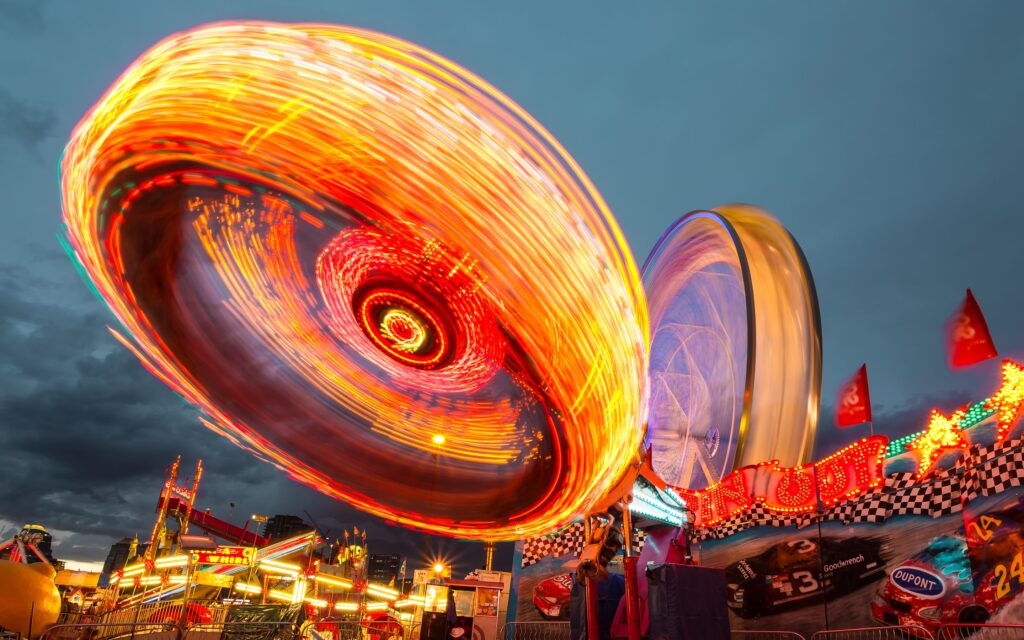Poem Beginning with a Parade and Ending in Invasion
You’re probably thinking trumpets, high steps,
or maybe you recently watched a travel show on Spain
where for one week they dress in hoods and weep
hauling huge idols through worn-stone narrow streets,
maybe you’re picturing a redundancy of Looney
Tunes above Fifth Avenue, but this starts with three children
running and a fourth far behind. You probably think
this could be any town, these any children, but this is
Rocklin, my town. One of them is me. It is 1995:
Jordan, McDonald’s, etc. You probably imagine
one of us deaf, or dying, are congratulating yourself
already for having gotten to the guts of the grandfather
clock of this story. Otherwise, you imagine us siblings
fleeing the most recent degradation, taking the form
of foxes to elude demons, flying jellyfish, a war.
Or maybe children are not a stand-in for anything
but children. And this town, ripped up from the inside
for the granite within, is no metaphor. On this page
are no police, and rats really move like they do
in cartoons: trading blocks of cheese like dollar bills,
skating on chunks of butter across a hot
salmon skin. You probably want me to say something
about the three seconds after dying, the little stones
a soul holds to weigh itself down before the long breeze
home. Instead, I ask: Would you warn them? How
to draw the shadow of a falling bomb? Would you
wonder why claws seem to be sprouting from everything,
even those children, whose dream you’re now in?
On Money
It was the way Sonic ran
like Speedy Gonzalez on cocaine
for coins, the way the coins jumped
from him when he was skewered
on spikes; the way they left him
with the ease of a child crumpling
paper when he died….Money
was a fad that stayed, a dance
known by rote and hate-loved
like the Macarena or Cockroach.
I could see the skeleton under my own
face, hungry. And in casinos
could feel the thrill of having
something to go all out for, something
to bet my dumbsweet life on.
Liza Minelli in Cabaret
was too busy dancing and loving
it to see the room through the years fill
with Nazis. Money means I am on her stage
and in the audience, I am holding the lion’s
mouth, rigging lights, gasping when
the brick disappears beneath the house of
cards constructed painstakingly by the illusionist
who tells us once he lived in his car and the brick
was his mother. I am the sound of clapping
to someone’s pain. The stage bright
with dancers. The crowd doesn’t change.
When we sit we are erect as banks.
—
Jeff Whitney’s most recent collection, Sixteen Stories, is forthcoming from Flume Press. Recent poems can be found or found soon in Adroit, Cherry Tree, Kenyon Review, Passages North, Pleiades, and Poetry Northwest. He lives in Portland.
Photography by: Jason Chen
